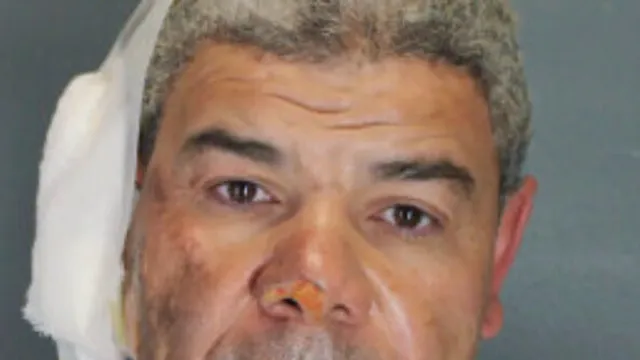
Elderly woman dies from injuries in Boulder Molotov cocktail attack
2025-07-01 00:00- An 82-year-old woman named Karen Diamond died from injuries sustained in a Molotov cocktail attack during a peaceful demonstration in Boulder.
- The suspect, Mohamed Sabry Soliman, faces multiple charges including first-degree murder and hate crimes, with the case highlighting issues of antisemitism.
- The Boulder community is uniting in support of the victims and their families as they cope with the aftermath of this tragic event.
Express your sentiment!
Insights
In June 2023, an 82-year-old woman named Karen Diamond was critically injured in a violent Molotov cocktail attack during a peaceful demonstration in Boulder, Colorado. The demonstration, known as the 'Run For Their Lives,' aimed to advocate for Israeli hostages held by Hamas. The suspect, 45-year-old Mohamed Sabry Soliman, allegedly hurled Molotov cocktails into the crowd, injuring over a dozen individuals. Following the attack, investigators revealed that Soliman had vocalized a desire to target 'Zionist people' and had planned the assault for an extended period. As the investigation progressed, authorities discovered that Diamond was the only fatality among the victims of the attack. Subsequently, the district attorney's office announced enhanced charges against Soliman, including two counts of first-degree murder related to Diamond's death. The charges initially listed as attempts at murder were amended due to her passing, underscoring the seriousness of the situation. In total, Soliman faced more than 100 counts, including federal hate crime charges that he denied in court. The Boulder County District Attorney, Michael Dougherty, expressed condolences to the Diamond family and emphasized the community's unity in supporting the victims. He acknowledged the heavy impact the attack had not only on the victims and their families but also on the broader community. Besides Diamond, 29 victims were identified in the attack, with several reporting physical injuries and trauma from the event. Authorities depicted the assault as both a premeditated attack on a specific group and a hate crime, given the targeted nature of the offense based on perceived national identity. Soliman's case garnered significant media attention, raising concerns surrounding antisemitism and public safety at peaceful demonstrations. The incident also sparked discussions about legal definitions of hate crimes in relation to political views, as Soliman's defense argued that the motivation stemmed from anti-Zionism rather than antisemitism. Due to the legal complexities surrounding the charges, local and federal cases against Soliman were underway. The preliminary hearing was scheduled for July, indicating that the legal proceedings would continue to unfold. The tragic death of Karen Diamond served as a grim reminder of the potential dangers faced by individuals participating in public demonstrations, particularly ones amid a politically charged environment. As the community mourns Diamond's death, it remains vigilant about the ongoing legal processes and the fight for justice for all the victims of the attack.
Contexts
The attack on the Boulder community has left a profound impact, resonating deeply within the lives of its residents. The incident has generated heightened fear and anxiety, altering the perception of safety in a community previously known for its relatively tranquil environment. Local citizens are grappling with feelings of vulnerability, as the attack disrupts the sense of normalcy that many had taken for granted. The emotional toll is manifested in increased stress levels, as individuals and families face the challenge of processing the trauma associated with the violence that ensued. Moreover, community members express a desire for greater security measures, calling into question existing protocols and reflecting a demand for a reassessment of safety in public spaces. In the aftermath of the attack, local organizations and mental health services have mobilized to provide support. Counseling services have expanded to meet the needs of those affected, with community centers serving as gathering points for healing and dialogue. Workshops and support groups aim to foster resilience, encouraging individuals to share their experiences and coping strategies. Additionally, community leaders have initiated discussions on gun control and violence prevention, emphasizing the need for comprehensive strategies to address the root causes of such tragedies. This calls for collaboration among local governments, law enforcement, and community advocacy groups to devise effective solutions. Economically, the attack has also cast a shadow over local businesses as foot traffic dwindles in the wake of heightened fears. Business owners report decreased sales, as patrons become more cautious about their surroundings. The lingering psychological effects may deter visitors, making it crucial for the community to develop initiatives that reinforce its image as a safe and welcoming place. Community events and promotions are being organized to revitalize commerce and restore confidence among consumers, representing a proactive approach to rebounding from the incident's economic toll. In conclusion, the impact of the attack on Boulder extends beyond immediate physical harm; it reverberates through the psychological, social, and economic fabric of the community. As residents navigate the complexities of recovery, the resilience inherent within the Boulder community is becoming increasingly evident. The collective response emphasizes solidarity and support, as individuals come together to foster healing. Ultimately, the path forward requires a multifaceted approach that not only addresses trauma but also paves the way for meaningful change in policies aimed at ensuring the safety and well-being of all community members.